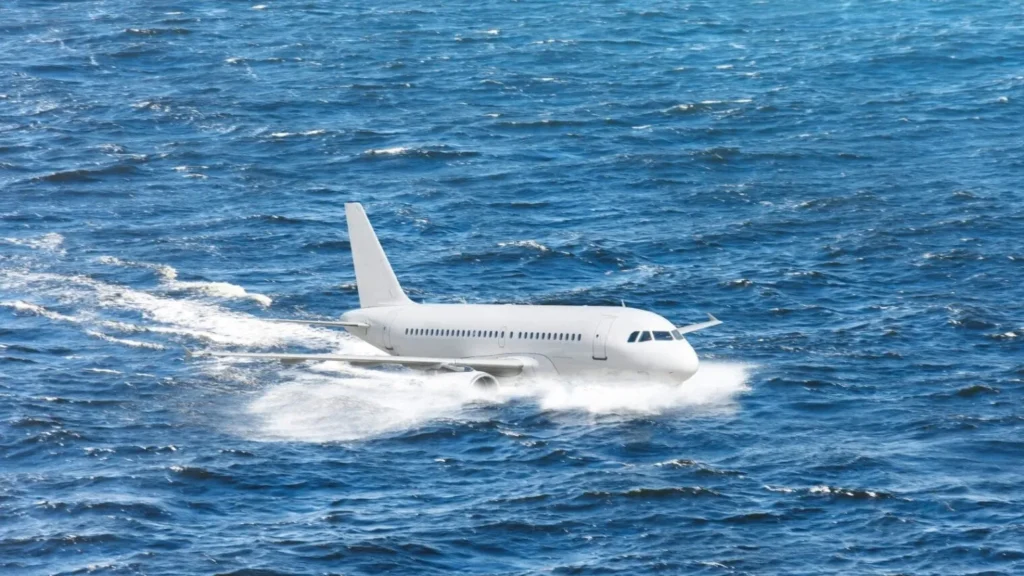
Odysight.ai’s technology allows for constant monitoring of aircraft, sending alerts in case of malfunctions that could lead to accidents.
Israeli company Odysight.AI is working to reduce airplane accidents and make aviation safer. Odysight’s AI-based visual sensing technology monitors the conditions and critical safety components of hard-to-reach environments, such as planes, for the early detection of potential malfunctions that could lead to accidents. The system sends out an alert anytime it detects an anomaly. In addition to improving safety, the system significantly reduces maintenance costs and labor. The company has offices in Israel and the United States and plans to open bureaus in Europe this year. Odysight.AI CTO Eli Israeli is a Technion alumnus.
News reports over the past year indicate that airplane accidents are increasing.
According to a report from the International Air Transport Association (IATA), the number of fatal air accidents in 2024 rose to seven with 244 fatalities, compared to 2023’s one fatal accident that resulted in 72 deaths.
The data does not include deaths from security-related aviation incidents such as the crash of an Azerbaijan Airlines jet — allegedly brought down by a Russian missile — that killed 38 people.
In the report, the IATA described the increase as “a top concern for aviation safety requiring urgent global coordination.”
Odysight.ia
Now, Israeli company Odysight.ia (a combination of the words “odyssey,” “sight” and “artificial intelligence”) is working to reduce airplane accidents and make aviation generally safer.
“We are changing the aviation world,” Odysight’s CEO, Col. (ret.) Yehuda Ofer, an entrepreneur and ex-Israeli Air Force pilot.
Odysight’s AI-based visual sensing technology monitors the conditions and critical safety components of hard-to-reach environments, such as planes, for the early detection of potential malfunctions that could lead to accidents.
Anytime the system detects an anomaly, it sends out an alert. The system is essentially a kit — a small, advanced computer with a set of specialized sensors, unique operating system, and levels of visual analytics and algorithms technologies.
“Our algorithm creates not only an alert in real time for the anomaly, but also a prediction, which is a crucial part of the technology. If you can see things that are there, but normally cannot be monitored, you have very valuable data for all the chain of maintenance,” says Ofer.
Alongside increasing safety, the system is said to significantly reduce maintenance costs and labor. “The most expensive thing in aviation for an aircraft is time on the ground” to carry out safety procedures, notes Ofer.
Odysight also lowers costs because fewer maintenance personnel are required and the system can be more reliable than human employees, who are less and less inclined to go into this profession.
“Our system does not go out for the weekend, does not drink, does not have a girlfriend; it is just there, watching and monitoring all the time,” adds Ofer.
From health to NASA
Founded in 2013 under the name ScoutCam, the company’s technology was initially developed for medical use to treat gastrointestinal disorders and perform minimally invasive surgeries.
It was established by Prof. Benad Goldwasser, a veteran Israeli urological surgeon and a founder of several successful medical startups.
In 2020, the company changed its name and pivoted its focus from health to aviation after the IAF approached the startup, asking for a potential solution following a helicopter accident that resulted in a crash.
Odysight is still involved in the medical field, but “it’s not our main focus,” says Ofer, who has been with the company since 2022.
Since pivoting, Odysight’s technology has been used by NASA in its Robotic Refuelling Mission 3.
“It’s a robot that goes outside of the space shuttle and attaches to a dead satellite in orbit, checking the fuel systems. If everything is okay — no cracks, no leaks — you can refuel the dead satellite,” explains Ofer.
Pioneers
Ofer says the big vision for the company is to expand and become the sector leader. “We are already pioneers, and we want to create a better and safer world,” he says.
Odysight recently became the first Israeli startup to announce an initial public offering in 2025, uplisting to Nasdaq with an IPO priced at $21.5 million at a company valuation of $129 million.
“We raised the funds that are required, as well as sales and backlog,” adds Ofer.
The company employs 60 workers across its offices in Israel and the United States, and plans to open bureaus in Europe this year.
One of the Israeli offices is located in Omer, some 40 km (25 miles) from Gaza in southern Israel.
“We have people here from different industries and backgrounds, who never stopped working throughout the war, not even for one day,” Ofer tells.
“The best of technologies cannot go forward from being a vision to a real capability without the people who are making the difference. It’s the people that push us forward.”
